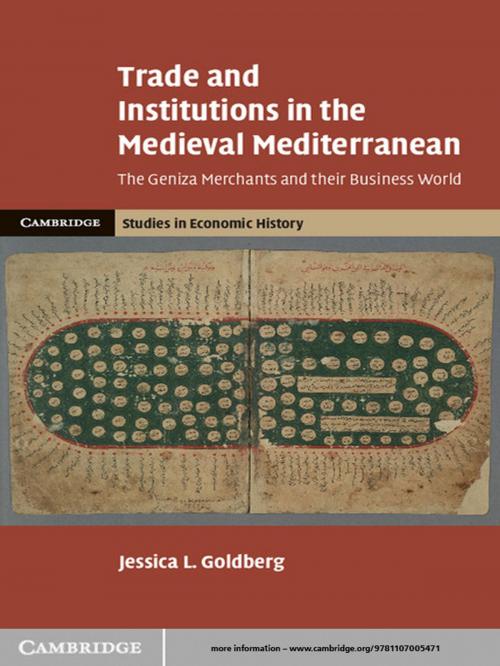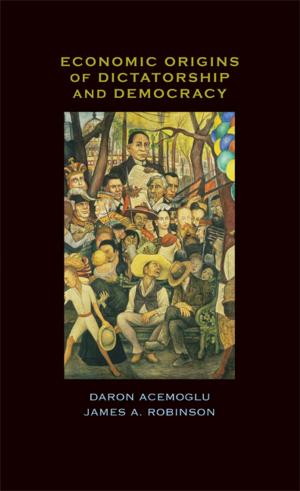Trade and Institutions in the Medieval Mediterranean
The Geniza Merchants and their Business World
Business & Finance, Economics, Economic History, Nonfiction, History| Author: | Jessica L. Goldberg | ISBN: | 9781139564113 |
| Publisher: | Cambridge University Press | Publication: | August 23, 2012 |
| Imprint: | Cambridge University Press | Language: | English |
| Author: | Jessica L. Goldberg |
| ISBN: | 9781139564113 |
| Publisher: | Cambridge University Press |
| Publication: | August 23, 2012 |
| Imprint: | Cambridge University Press |
| Language: | English |
The Geniza merchants of the eleventh-century Mediterranean - sometimes called the 'Maghribi traders' - are central to controversies about the origins of long-term economic growth and the institutional bases of trade. In this book, Jessica Goldberg reconstructs the business world of the Geniza merchants, maps the shifting geographic relationships of the medieval Islamic economy and sheds new light on debates about the institutional framework for later European dominance. Commercial letters, business accounts and courtroom testimony bring to life how these medieval traders used personal gossip and legal mechanisms to manage far-flung agents, switched business strategies to manage political risks and asserted different parts of their fluid identities to gain advantage in the multicultural medieval trading world. This book paints a vivid picture of the everyday life of Jewish merchants in Islamic societies and adds new depth to debates about medieval trading institutions with unique quantitative analyses and innovative approaches.
The Geniza merchants of the eleventh-century Mediterranean - sometimes called the 'Maghribi traders' - are central to controversies about the origins of long-term economic growth and the institutional bases of trade. In this book, Jessica Goldberg reconstructs the business world of the Geniza merchants, maps the shifting geographic relationships of the medieval Islamic economy and sheds new light on debates about the institutional framework for later European dominance. Commercial letters, business accounts and courtroom testimony bring to life how these medieval traders used personal gossip and legal mechanisms to manage far-flung agents, switched business strategies to manage political risks and asserted different parts of their fluid identities to gain advantage in the multicultural medieval trading world. This book paints a vivid picture of the everyday life of Jewish merchants in Islamic societies and adds new depth to debates about medieval trading institutions with unique quantitative analyses and innovative approaches.















